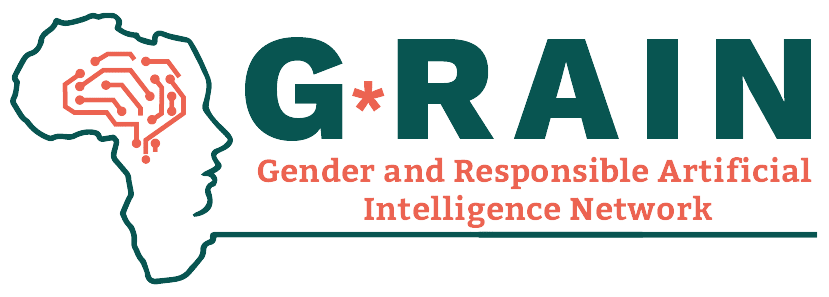A new UNESCO global survey of over 450 schools and universities has revealed that less than 10 % of them have an internal policy and/or formal guidance in place regarding the use of generative artificial intelligence (AI) applications.
This survey was carried out for the Ministerial round table on generative AI in educationorganised by UNESCO on 25 May 2023.
Its results illustrate the uncertainties associated with the sudden emergence of new applications of generative AI, which, thanks to their powerful capabilities, produce creations that seem to come from a human mind, including reading sheets, essays, letters, computer programmes, illustrations and much more. This technology is also capable of achieving excellent marks in major standardised examinations, including university entrance exams and tests for regulated professions such as medicine and law.
The almost systematic absence of guidance shows that education systems have let themselves be overtaken by new technologies.
Policies governing the use and misuse of new digital technologies for educational purposes often take shape at school level, before spreading to the municipal, regional and/or national level. The small number of internal policies highlighted by the UNESCO survey proves that education systems are still in the process of finding their balance and thinking about how to respond. Developing and merging more systemic policies - involving large numbers of schools and universities at national and sub-national levels - is likely to take much longer.
"The survey results show that there is a great deal of confusion about the use of powerful new generative AI technologies in education," said Sobhi Tawil, Director of UNESCO's Future of Learning and Innovation Team. "Institutions are not yet providing guidance or direction."
The fastest-growing digital application of all time
Schools and universities seem to be taking their time making recommendations and establishing rules, but learners and teachers are not waiting. ChatGPT is estimated to have over 100 million users worldwide, making it by far the fastest growing digital application of all time, surpassing the already staggering figures of social networking applications such as Instagram, Snapchat and others.
"In the absence of institutional guidance, there is a risk that these technologies will be integrated into education systems in an unplanned way, with little understanding of the implications or consequences. Ideally, we need to think seriously about their place and role, and then act to realise that vision. We cannot simply ignore the short- and medium-term impact of these technologies on safety, diversity of knowledge, equity and inclusion," said Mr Tawil.
UNESCO advises schools and universities to be proactive by developing guidance and helping learners and teachers to better understand these technologies and the ins and outs of their use.
"Educational establishments must adopt a flexible and iterative approach, otherwise they will be constantly trying to catch up with the breakneck pace of technological innovation", said Mr Tawil.
More universities than schools have recommendations
Of the educational establishments that say they have a policy in place, around half say they provide 'clear guidance', i.e. have clear rules and advice about the use of generative AI applications in an educational context. The other half say they provide 'user discretion', meaning that it is up to departments, classrooms and teachers to determine whether and to what extent the use of generative AI applications is permitted.
Of the hundreds of institutions that took part in the survey, only two reported having a 'ban' policy or guidance in place, whereby the institution bans the use of generative AI applications such as ChatGPT in whole or in part.
Approximately 40 % of educational establishments stating that they have guidance specify that this has not been put down in writing and is therefore only communicated orally. This situation demonstrates the improvised nature of the responses provided in the education sector.
Universities are significantly more likely than schools to have formulated institutional policy or guidance. Around 13 % of universities claim to have some form of guidance, compared to only 7 % of schools.
Another telling fact is that almost 20 % of respondents to the survey said they did not know whether their institution had a policy or guidance on generative AI. This high figure reflects the uncertainty and regulatory vacuum that currently surrounds these new technologies.
UNESCO guidelines on AI in education
In recent years, UNESCO has been working to help educational institutions and countries adopt a course of action on the use of AI in the educational context, moving in a humanistic direction that prioritises inclusion, equity, diversity and quality. The UNESCO Recommendation on the Ethics of Artificial Intelligence (2021) contains general principles that aim to underpin the rules and regulations specific to each sector and each country. The Beijing Consensus on Artificial Intelligence and Education (2019) and the publication I would blush if I could (2019) address some of the specific implications of AI technologies, including chatbots, on education and culture. In addition, the publication AI and education: a guide for policymakers (2021) offers specific policy advice.
About the survey
This survey was conducted from 4 to 19 May 2023 among the worldwide networks of UNESCO Associated Schools and University Chairs. Just over 450 institutions responded (11 % from Africa, 5 % from the Arab States, 23 % from Asia and the Pacific, 44 % from Europe and North America and 17 % from Latin America and the Caribbean).
Not that long ago, people lived and functioned in tight communities. Every vendor knew their customers personally and could make...
This Machine Learning Glossary aims to briefly introduce the most important Machine Learning terms - both for the commercially and...





